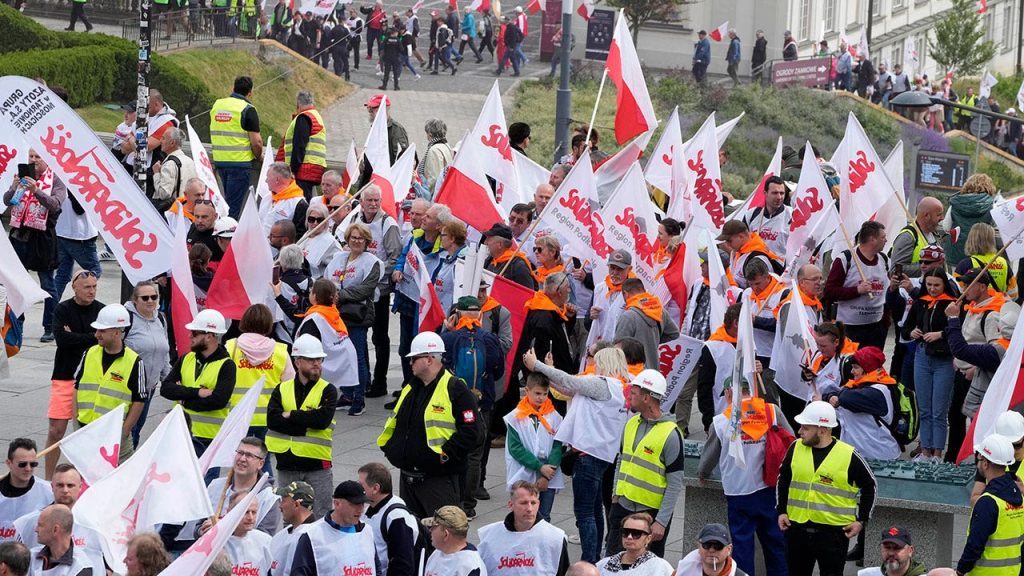Polish farmers marched in Warsaw to protest the European Union’s climate policies and oppose the pro-EU government. They were supported by the right-wing opposition party Law and Justice, and the protest coincided with pre-European Parliament election campaigning. The farmers were primarily against the EU’s Green Deal, which they felt interfered with their work and imposed high costs on them. The demonstration stopped at the EU Warsaw office and parliament, with banners expressing discontent towards Brussels and the belief that the EU would advise eating insects and worms instead of cattle meat.
As Poland’s political parties campaign ahead of elections for the European Parliament next month, Prime Minister Donald Tusk announced a reshuffle of his Cabinet. This was seen as a move to bring new energy into the government, which has been focused on deep reforms in areas like justice, foreign policy, and the media. The changes reflected a desire to uphold the pro-European Union agenda that Tusk’s government has been following, reversing policies set forth by the previously ruling Law and Justice party. Tusk’s team sought to free the judiciary and state media from political control, while also holding accountable those responsible for mismanagement and loss of funds by state-owned companies.
The protest by Polish farmers against the EU’s Green Deal was part of a broader movement seen across Europe, with farmers expressing dissatisfaction with policies they felt were burdensome and interfered with their way of life. The farmers, organized by Solidarity, a farmers’ trade union, were vocal in their opposition to the Green Deal and demanding more autonomy over their land and work. The support of the right-wing opposition party Law and Justice highlighted a split in the political landscape, with Tusk’s pro-EU government facing criticism from those who felt it was too closely aligned with Brussels.
The reshuffle in Prime Minister Tusk’s Cabinet, announced in response to the upcoming European Parliament elections, was seen as a strategic move to inject new energy into the government and uphold its pro-European Union agenda. The changes aimed to continue the reforms initiated by Tusk’s administration, including freeing the judiciary and state media from political influence. The replacement of several ministers indicated a shift in focus towards policies that aligned with the EU’s goals, as opposed to those put forth by the Law and Justice party, which had previously clashed with the EU during its administration.
Overall, the protests by Polish farmers against the EU’s Green Deal, the reshuffle in Prime Minister Tusk’s Cabinet, and the broader political landscape in Poland highlighted the tensions between different factions within the country. The farmers’ concerns about the impact of EU policies on their livelihoods, as well as the government’s response in reshuffling the Cabinet to maintain its pro-EU stance, underscored the complexities of balancing national interests with European Union directives. As political campaigns for the European Parliament elections continued, the protests and subsequent government actions reflected the ongoing debates over Poland’s relationship with the EU and the direction of its governance.













